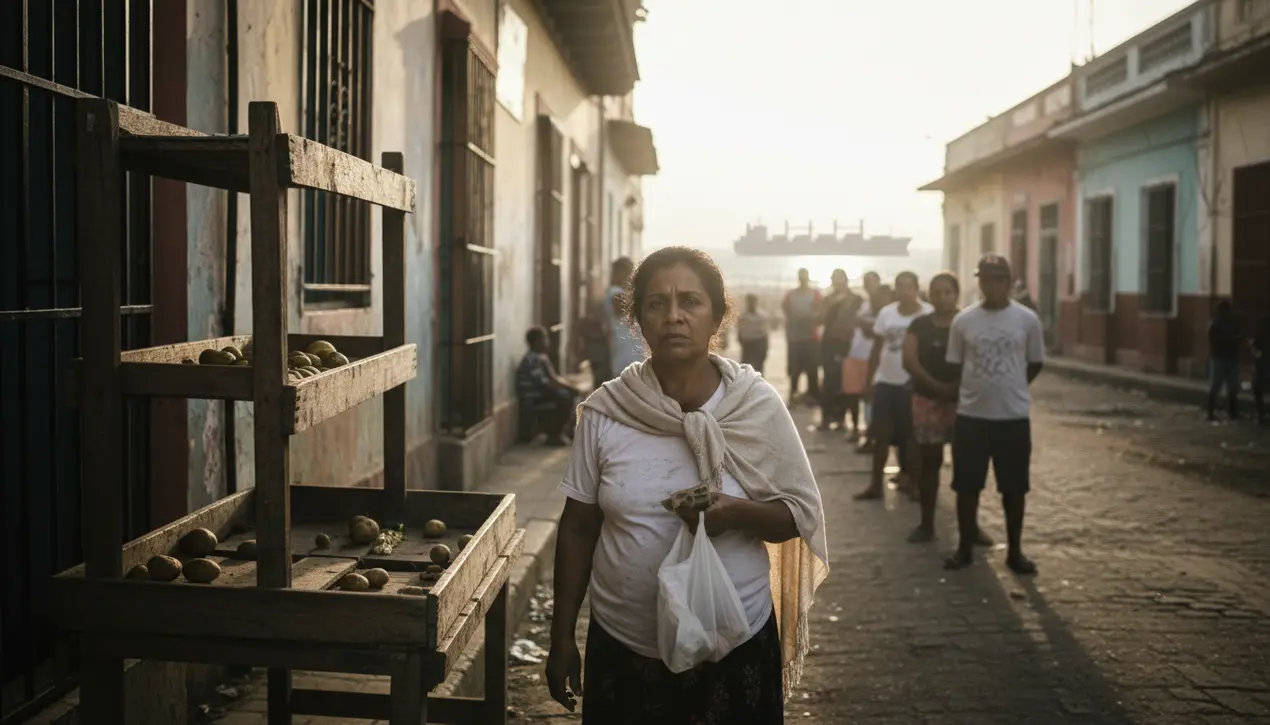
Politicsconflict & defenseMilitary Operations
Venezuelans Prioritize Food Crisis Over US Military Threat.
EM
Emma Wilson
18 hours ago7 min read
The rattle of sabers from the north echoes across the Caribbean, a distant, abstract threat that fails to stir the populace of Caracas. For the families crowding the mercados of Petare, for the elderly counting bolivars in Maracaibo, the true, grinding war is not being waged by foreign naval fleets but by the relentless, suffocating arithmetic of the supermarket receipt.While the United States escalates a military threat in nearby waters, a maneuver that would dominate headlines in a different nation, Venezuelans are confronting an enemy that cannot be deterred by diplomacy or military posturing: a catastrophic, sharp rise in food prices that has turned the most basic act of sustenance into a daily, demoralizing battle. This is the core of the crisis, a profound disconnect between geopolitical theater and human necessity.The US military exercises, while significant in the halls of power, are a spectral concern compared to the tangible panic of a mother discovering the price of a kilo of rice has doubled overnight, or the quiet despair of a father skipping meals so his children can eat. The nation's collective psyche is consumed by a hyperinflationary vortex that has rendered salaries meaningless and savings obsolete, a domestic economic siege that has persisted for years, eroding the social contract far more effectively than any external force.This is not to dismiss the gravity of international tensions; the history between the US and Venezuela is a long and fraught one, marked by sanctions, accusations, and a deep-seated ideological animosity. Yet, these macro-level conflicts are filtered through the immediate, visceral reality of empty shelves and the humiliating reliance on international aid or remittances from the millions who have fled.The government in Caracas may project an image of defiance against imperialist aggression, but on the cracked pavements of its cities, the narrative is one of pure survival. The conversation in the queues for subsidized food boxes isn't about naval blockades; it's about the price of harina pan for arepas, the cost of chicken, the impossibility of affording protein.This internal collapse creates a dangerous vacuum where national sovereignty becomes a theoretical concept, secondary to the primal need for food security. The international community watches the military posturing, but the more insidious, long-term threat to stability is this erosion of the populace's very will and ability to endure.When a government cannot ensure its people can feed themselves, all other forms of authority begin to crumble. The real front line in Venezuela is not at sea; it is in the stomachs of its citizens, and on that battlefield, the casualties are measured in hunger, desperation, and a deepening humanitarian catastrophe that no show of force can possibly resolve.
#Venezuela
#US military threat
#food prices
#economic crisis
#sanctions
#featured
Stay Informed. Act Smarter.
Get weekly highlights, major headlines, and expert insights — then put your knowledge to work in our live prediction markets.
Comments
Loading comments...
© 2025 Outpoll Service LTD. All rights reserved.